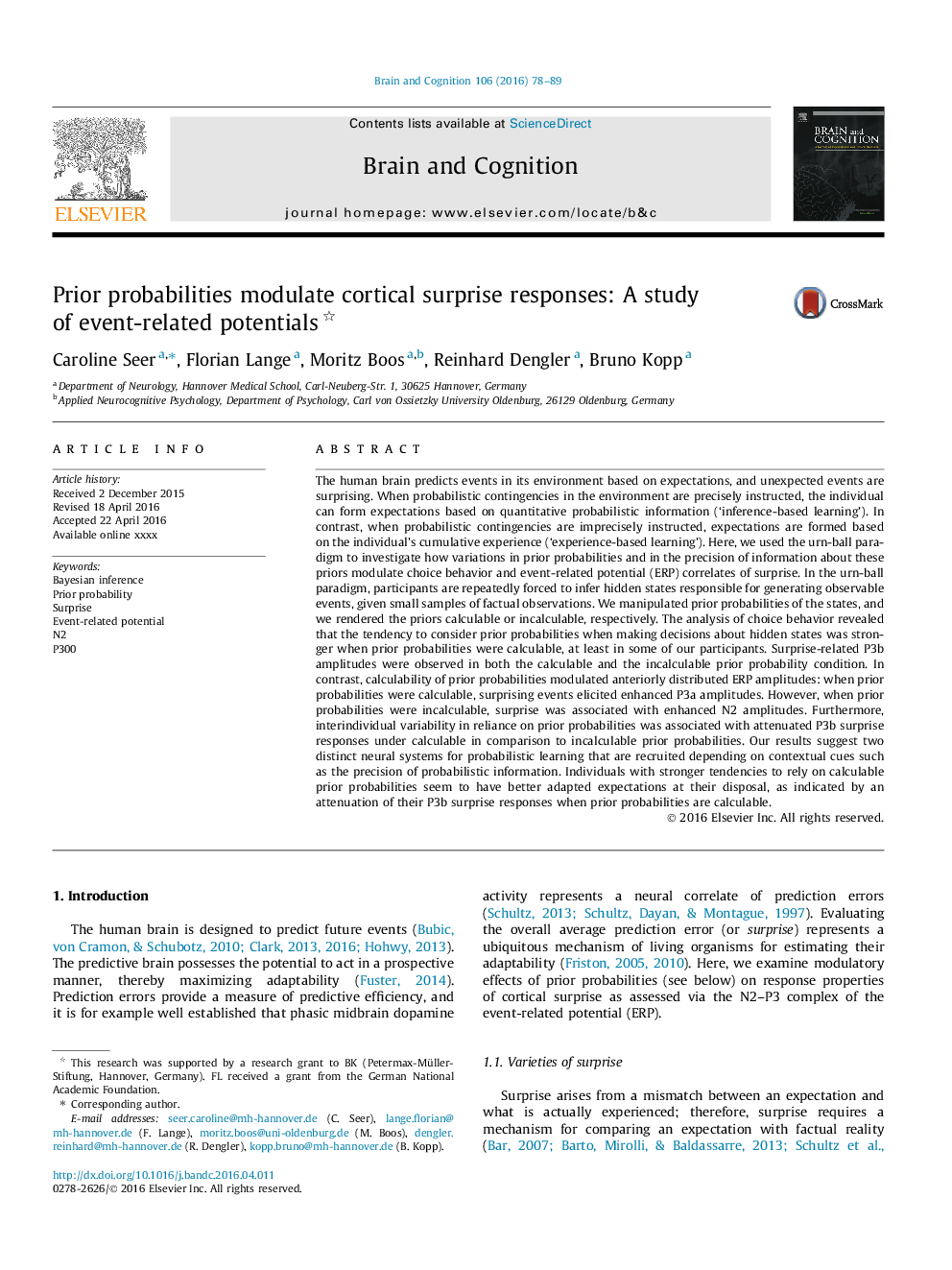| کد مقاله | کد نشریه | سال انتشار | مقاله انگلیسی | نسخه تمام متن |
|---|---|---|---|---|
| 7282953 | 1473965 | 2016 | 12 صفحه PDF | دانلود رایگان |
عنوان انگلیسی مقاله ISI
Prior probabilities modulate cortical surprise responses: A study of event-related potentials
دانلود مقاله + سفارش ترجمه
دانلود مقاله ISI انگلیسی
رایگان برای ایرانیان
کلمات کلیدی
موضوعات مرتبط
علوم زیستی و بیوفناوری
علم عصب شناسی
علوم اعصاب شناختی
پیش نمایش صفحه اول مقاله

چکیده انگلیسی
The human brain predicts events in its environment based on expectations, and unexpected events are surprising. When probabilistic contingencies in the environment are precisely instructed, the individual can form expectations based on quantitative probabilistic information ('inference-based learning'). In contrast, when probabilistic contingencies are imprecisely instructed, expectations are formed based on the individual's cumulative experience ('experience-based learning'). Here, we used the urn-ball paradigm to investigate how variations in prior probabilities and in the precision of information about these priors modulate choice behavior and event-related potential (ERP) correlates of surprise. In the urn-ball paradigm, participants are repeatedly forced to infer hidden states responsible for generating observable events, given small samples of factual observations. We manipulated prior probabilities of the states, and we rendered the priors calculable or incalculable, respectively. The analysis of choice behavior revealed that the tendency to consider prior probabilities when making decisions about hidden states was stronger when prior probabilities were calculable, at least in some of our participants. Surprise-related P3b amplitudes were observed in both the calculable and the incalculable prior probability condition. In contrast, calculability of prior probabilities modulated anteriorly distributed ERP amplitudes: when prior probabilities were calculable, surprising events elicited enhanced P3a amplitudes. However, when prior probabilities were incalculable, surprise was associated with enhanced N2 amplitudes. Furthermore, interindividual variability in reliance on prior probabilities was associated with attenuated P3b surprise responses under calculable in comparison to incalculable prior probabilities. Our results suggest two distinct neural systems for probabilistic learning that are recruited depending on contextual cues such as the precision of probabilistic information. Individuals with stronger tendencies to rely on calculable prior probabilities seem to have better adapted expectations at their disposal, as indicated by an attenuation of their P3b surprise responses when prior probabilities are calculable.
ناشر
Database: Elsevier - ScienceDirect (ساینس دایرکت)
Journal: Brain and Cognition - Volume 106, July 2016, Pages 78-89
Journal: Brain and Cognition - Volume 106, July 2016, Pages 78-89
نویسندگان
Caroline Seer, Florian Lange, Moritz Boos, Reinhard Dengler, Bruno Kopp,